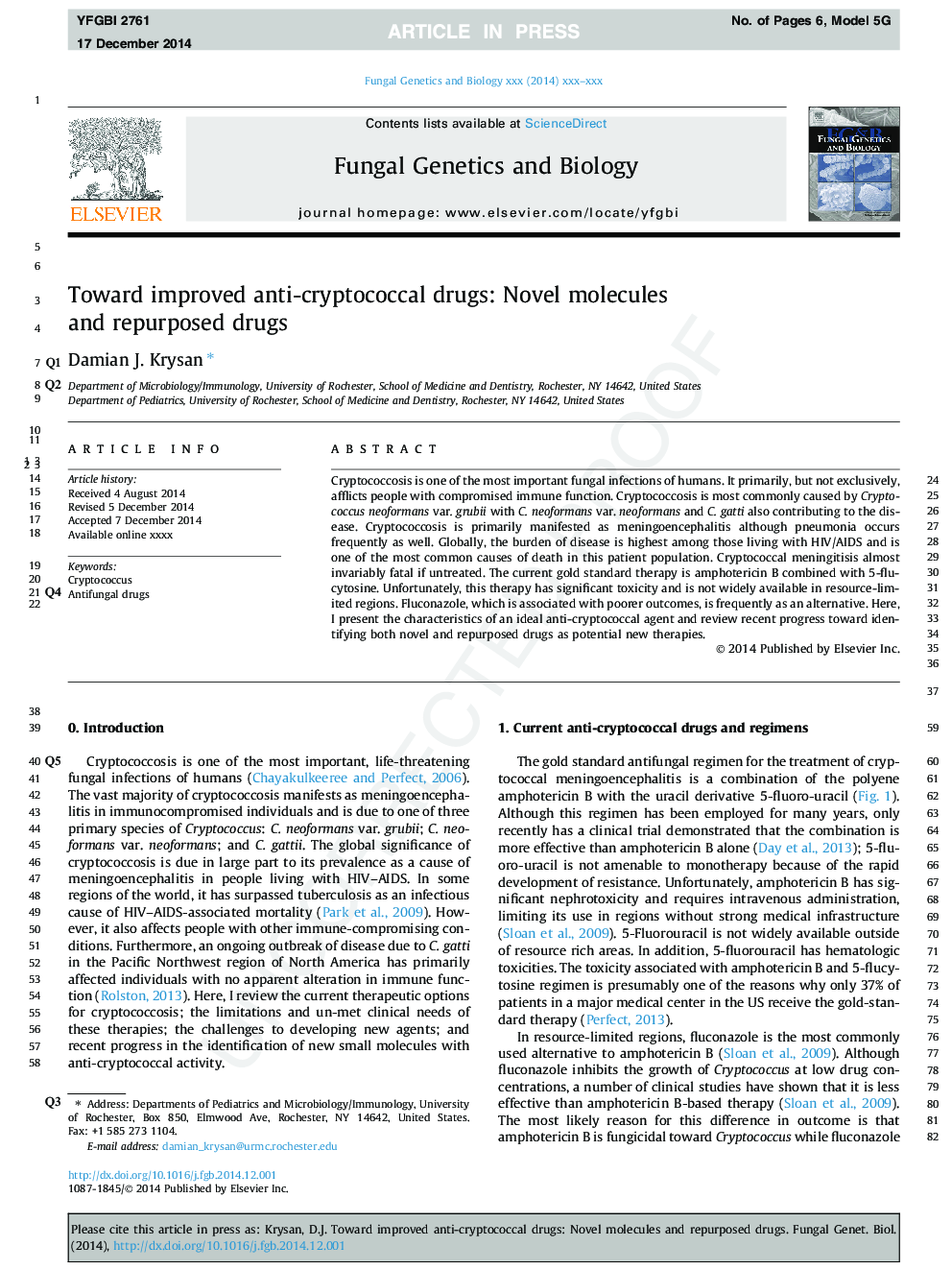| Article ID | Journal | Published Year | Pages | File Type |
|---|---|---|---|---|
| 8470775 | Fungal Genetics and Biology | 2015 | 6 Pages |
Abstract
Cryptococcosis is one of the most important fungal infections of humans. It primarily, but not exclusively, afflicts people with compromised immune function. Cryptococcosis is most commonly caused by Cryptococcus neoformans var. grubii with C. neoformans var. neoformans and C. gatti also contributing to the disease. Cryptococcosis is primarily manifested as meningoencephalitis although pneumonia occurs frequently as well. Globally, the burden of disease is highest among those living with HIV/AIDS and is one of the most common causes of death in this patient population. Cryptococcal meningitisis almost invariably fatal if untreated. The current gold standard therapy is amphotericin B combined with 5-flucytosine. Unfortunately, this therapy has significant toxicity and is not widely available in resource-limited regions. Fluconazole, which is associated with poorer outcomes, is frequently as an alternative. Here, I present the characteristics of an ideal anti-cryptococcal agent and review recent progress toward identifying both novel and repurposed drugs as potential new therapies.
Related Topics
Life Sciences
Biochemistry, Genetics and Molecular Biology
Cell Biology
Authors
Damian J. Krysan,
